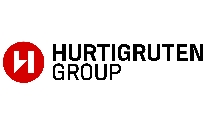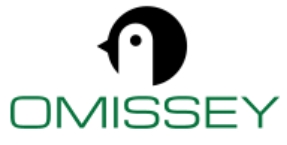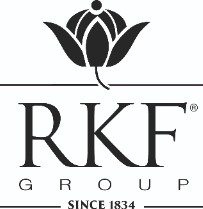
HURTIGRUTEN NORWAY UNVEILS ITS FIRST ZERO-EMISSION CRUISE SHIP: WORLD'S MOST ENERGY-EFFICIENT CRUISE VESSEL
Weeks before its 130thanniversary, Hurtigruten Norway unveiled plans for its first zero-emission ship. Initially announced in March 2022, under project name ‘Sea Zero,’ the first-of-its-kind initiative has revealed early concept plans for the world’s most energy-efficient cruise ship. |
 |
HURTIGRUTEN NORWAY UNVEILS ITS FIRST ZERO-EMISSION CRUISE SHIP: WORLD'S MOST ENERGY-EFFICIENT CRUISE VESSEL
Weeks before its 130thanniversary, Hurtigruten Norway unveiled plans for its first zero-emission ship. Initially announced in March 2022, under project name ‘Sea Zero,’ the first-of-its-kind initiative has revealed early concept plans for the world’s most energy-efficient cruise ship. |
Catégorie : Europe - Économie du secteur
- Développement durable
Ceci est un communiqué de presse sélectionné par notre comité éditorial et mis en ligne gratuitement le 09-06-2023
Hurtigruten Norway presented the findings alongside its consortium of 12 maritime partners and research institute SINTEF, all joined in the pursuit of achieving emission-free marine travel.
Tasked with developing energy-efficient and carbon-neutral technology solutions, the consortium shared key findings following its first year of research.
“When we initially announced the ‘Sea Zero’ project over a year ago, we were faced with the challenge of not knowing which technologies would be available to us in 2030. Our task was to pave the way for new innovations and enhance existing ones to align with our sustainability objectives. While some of these technologies have reached a relatively advanced stage, they still necessitate dedicated research and development to ensure successful implementation within the maritime context. On the other hand, certain technologies are still in early development and require fundamental research and thorough testing. Following a rigorous feasibility study, we have pinpointed the most promising technologies for our groundbreaking future cruise ships. We are committed to delivering a ship that surpasses all others in terms of energy efficiency and sustainability within just a few years,” said Hedda Felin, the CEO of Hurtigruten Norway.
In line with their focus on sustainable operations tailored to the Norwegian coast, Hurtigruten Norway plans for smaller, custom-built ships that leave a positive footprint with zero emissions to both sea and land.
With the first ship ready in 2030, the company plans to transform its entire fleet into zero-emission vessels. Since only 0.1% of ships worldwide currently use zero-emission technology, Hurtigruten Norway’s project aims to drastically improve the greater cruise industry’s sustainability record and future of travel.
Hurtigruten Norway’s future ships will be electric and equipped with batteries that charge in port.
Combining 60-megawatt hour battery solutions with wind technology, the vessel is expected to feature numerous firsts and improved solutions that do not exist on cruise ships today, including retractable sails with solar panels, artificial intelligence maneuvering, contra-rotating propellers, and multiple retractable thrusters.
Additional technologies include air lubrication, advanced hull coating, and proactive hull cleaning.
Battery levels will be displayed on the ship’s external sides, while the bridge, where the Captain and crew steer the ship, is expected to reduce significantly in size following enhanced A.I. maneuvering, mimicking that of an airplane cockpit. Hurtigruten Norway has operated along the Norwegian coast for 130 years and has superior knowledge of the 34 ports it stops at daily.
The cruise line will thus use A.I. to collect data that learns the most efficient docking and undocking methods for each port, improving in-port operations in bad or challenging weather.
The three retractable, autonomous wing rigs will comprise 1500m² (16,146 ft²) of solar panels and a total wind surface of 750m² (8,073ft²), reaching a maximum height of 50m (164 ft) when fully extended.
Hurtigruten Norway strives for superior guest comfort and spectacular views on board its first zero-emission ship. A streamlined shape will result in less air resistance, reduce energy use, and increase passenger comfort.
In addition to ample outdoor space, enlarged surface areas with dedicated windows will allow for unparalleled views of what is often described as ‘the world’s most beautiful coastline.’
“We are developing the concept for a very innovative cruise design and researching to find the optimal design methods suitable for zero-emission ships. The streamlined shape, with its innovative hull and propulsion solutions, not only reduces energy demand but also increases passenger comfort. In the process, we are developing new design tools and exploring new technologies for energy efficiency,” said Henrik Burvang, Research and Innovation Manager at VARD, the design and shipbuilding company behind the concept visuals.
Guests will play a key role in minimizing energy consumption through an interactive mobile app, where they can operate ultra-modern cabin ventilation, as well as measure their own water and energy consumption.
Sea Zero has now entered a two-year phase in which the proposed technologies will be tried, tested, and developed further in pursuit of the final zero-emission ship. The current research and development phase focuses on battery production, propulsion technology, hull design, and sustainable practices that reduce energy use to an absolute minimum.
Developing new technologies for onboard hotel operations, which can consume up to 50% of the ship’s total energy use, will be crucial to the project’s success. The goal is a 50% energy reduction compared to Hurtigruten Norway’s current ships.
While Hurtigruten Norway is working towards its first zero-emission ship, the company is currently undertaking one of the most extensive environmental upgrades in European maritime history with its existing fleet.
Two of the seven ships have been upgraded to battery-hybrid-powered ships, with a third to be upgraded this fall. The five other vessels are being outfitted with various technologies that will cut CO² emissions by 25% and NOx (nitrogen oxides) by 80%. In 2019, sister company Hurtigruten Expeditions introduced the world’s first battery-hybrid-powered ship, MS Roald Amundsen; the Expeditions arm now has three battery-hybrid ships out of its seven-ship fleet.
The new zero-emission ship is modeled at 135 meters (443 feet) long, with 270 cabins that hold 500 guests and 99 crew.
Just as Hurtigruten Norway has been transporting cargo along the Norwegian coast for 130 years, the new ship will also have a significant cargo hold and transport cars.
About Hurtigruten Norway’s Sea Zero project
The Sea Zero project aims to enable zero-emission passenger and freight transport along the Norwegian coast by 2030, by developing and demonstrating emission-free ships for Hurtigruten Norway. To achieve this goal, one must look at combinations of different measures both on energy efficiency (ship design and operation) and energy supply (fuel and emissions). In addition, the application of some technologies will require the development of port infrastructure (e.g. charging).
Some of these technologies are relatively mature, but still need R&D for scale-up, maritime adaptation, and optimization. Other technologies are immature and require more basic research. The project consists of industry actors and R&D institutions with expertise and products/services in the technology areas that are considered most critical to achieving success.
Hurtigruten Norway’s partners in the Sea Zero project are:
SINTEF
Cavotec Cavotec SA
Vard
Brunvoll
Plug
Corvus Energy
DNV
Sustainable Energy Catapult
Teknotherm
Jotun
Bergen Port
Norwegian Maritime Authority
Norske Havner
About Hurtigruten Group
Hurtigruten Group is the world’s leading adventure travel company, allowing guests to explore the most unique destinations in a sustainable and meaningful way.
With headquarters in Oslo, Norway, Hurtigruten Group has a proud expedition heritage and is committed to working with the best green technology to ensure our products are safe and respectful towards nature, wildlife and the communities we visit.
Hurtigruten Group has a comprehensive portfolio encompassing three business areas: Hurtigruten Expeditions, which was founded in 1896, and is the world’s largest and leading expedition cruise operator offering small-ship expedition cruising to around 250 destinations to more than 30 countries. Hurtigruten Norway, which operates Hurtigruten Norwegian Coastal Express, considered ‘the world’s most beautiful voyage’ has been sailing along the Norwegian coastline since 1893. Hurtigruten Svalbard, one of the most exclusive tour operators in the industry, offers land-based adventures on the spectacular Arctic Archipelago.
|
|






